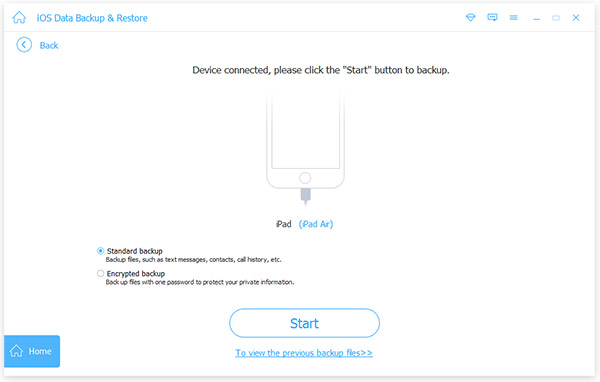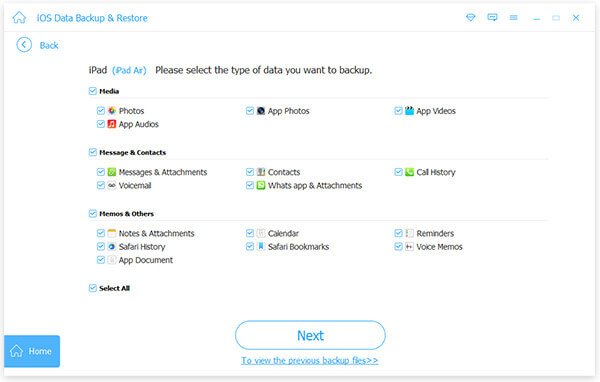From iOS 18 to iOS 26: Why Apple Skipped iOS 19 This Time
At WWDC 2026, Apple broke its tradition in iOS version numbering that lasted for more than a decade, and jumped from iOS 18 to iOS 26 in one go. You may be amazed at this unexpected jump: Why is iOS 26 and not iOS 19?
In this article, we’ll explore the reasons behind this change and what it means for you. Read more.
PAGE CONTENT:
Part 1: Version Number Change Comparison
Actually, the iOS version numbers of Apple have been released basically in an increasing manner year by year, starting from the earliest iPhone OS 1 to the current iOS 18. The following is a comparison table of previous versions:
| Year | Version | Note |
| 2007 | iPhone OS 1 | First Release |
| 2008 | iPhone OS 2 | Apple Store Launched |
| 2009 | iPhone OS 3 | / |
| 2010 | iOS 4 | Renamed from iPhone OS to iOS |
| 2011 | iOS 5 | iCloud Integration |
| 2012 | iOS 6 | Apple Maps Introduced |
| 2013 | iOS 7 | Flat Design |
| 2014 | iOS 8 | New features: Health, Family Sharing |
| 2015 | iOS 9 | Low Power Mode |
| 2016 | iOS 10 | / |
| 2017 | iOS 11 | File management, AR support |
| 2018 | iOS 12 | / |
| 2019 | iOS 13 | Dark Mode Introduced |
| 2020 | iOS 14 | Widgets and UI Improvements |
| 2021 | iOS 15 | Focus Mode |
| 2022 | iOS 16 | Customizable Lock Screen |
| 2023 | iOS 17 | Contact Posters |
| 2024 | iOS 18 | AI Features |
| 2025 | iOS 26 | ? |
From the above table, we can intuitively feel that from 2007 to 2024, from iPhone OS 1 to iOS 18, Apple's version naming method has always been increasing year by year. Therefore, the iOS 26version in 2025 is especially confusing. This sudden jump naturally raises the question: Why did Apple skip the expected versions and move straight to iOS 26? Below are the reasons.
Part 2: Why iOS 26 and Not iOS 19
This section will analyze some key reasons for Apple skip iOS 19 to iOS 26:
Make System Updates Instantly Recognizable
Apple took this opportunity to align the version number of the iPhone operating system with the current calendar year, letting users know which year the system was updated at a glance, reflecting the update cycle more intuitively.
As for why not iOS 25 instead of 26, you can understand it as although iOS 26 was released in late 2025, the majority of users generally upgraded and started using it in 2026. Using "26" is more like naming based on the year of use rather than the year of release, which is convenient for users to understand.
Unify the Version Numbers Across Multiple Platforms
Apple has covered a variety of products, including iPhone, iPad, Mac, Apple Watch, and Apple TV. Each product used to have its own system version number, and the version numbers of each product were never the same, which sometimes makes users confused.
| System platform | Current Version Number | New Version Number |
| iOS | 18 | 26 |
| iPadOS | 18 | 26 |
| macOS | 15 | 26 |
| watchOS | 11 | 26 |
| tvOS | 18 | 26 |
| visionOS | 2 | 26 |
From the table above, we can figure out that Apple will sync the operating systems of all its products to version 26. This change is not merely a digital leap. It aims to solve users' confusion about different device version numbers, align with ecosystem updates, enhance the clarity of marketing communication, and prepare for future cross-platform functionality.
Tips: It is also said that this can make other products, such as Apple Vision, appear more technologically mature and more trustworthy.
Signal Major Technological Leap
According to Apple's official, iOS 26 will have significant functional and structural adjustments, such as the introduction of iOS 26 features like cross-device innovative functions like AI and AR. A huge jump in the version number can highlight significant upgrades in its features. What's more, it conveys messages to users that this is a milestone update.
Pro Tips: Back up Your iPhone Before Updating to iOS 26
After knowing why iOS 26 skips iOS 19, you may already be eager to upgrade to iOS 26. However, before enjoying the new features, there is one thing you cannot ignore: Back up your iPhone before upgrading to iOS 26.
In this way, even if any unexpected situations occur during the upgrade process, it can ensure the safety of your important data.
Your Best iOS Backup & Restore Assistant
- One-click to back up and restore iPhone easily.
- Set a password for your iOS backup.
- Preview before you restore the iPhone backup.
Secure Download
Secure Download

Step 1. Press the button above to download this tool for free. Connect your iPhone to this software.
Step 2. Click iOS Data Backup & Restore on the main interface and press the iOS Data Backup button. Select a backup mode on the following page. The Encrypted backup mode is used to back up your iPhone with a password. Hit the Start button.

Step 3. Choose what data type you want to back up and then click the Next button to begin.

Conclusion
After reading our post, you may have a further understanding of why iOS 26 instead of iOS 19. Overall, the version jump from iOS 19 to iOS 26 is not merely a numerical change, but also reflects Apple's overall progress in terms of features, performance, and strategic deployment. By the way, if you are ready to update to iOS 26, don't forget to back up your iPhone in case of iPhone software update fails.
Related Articles
When you set up an iPhone or have your iPhone data lost, you may need to restore iPhone from backup. This article will tell you how to do that easily.
Encounter a problem with an app as a result of updating on your phone? Learn how to undo/downgrade an app update on iPhone or Android phone here.
If your iPhone stuck during iOS 26/18/17/16/15/14/13/12 update, come and read this post. Get 3 different ways to fix the iPhone update frozen issue with ease.
If you accidentally deleted some important messages on iPhone, you can use our 6 practical ways to retrieve deleted messages on iOS with ease!

